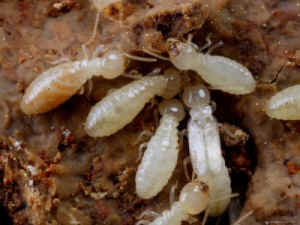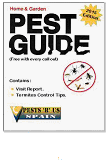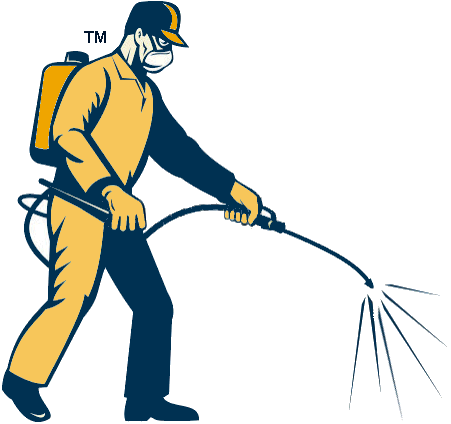Termites General
Termites are often called the “silent destroyer” because they may be secretly hiding and thriving in your home or yard without any immediate signs of damage.
All termites consume cellulose-based plant materials. Unfortunately, all homes, regardless of their construction type, can provide cellulose food for termite infestation.
If you find termites in your property, do NOT attempt to disturb the mud trail or spray any insecticide eg aerosol cans onto the termites. This is because you would cause them to withdraw and forage elsewhere.
Termites in Door Frames
Termites in door frames are the most reported termite problem in Spain. They can also be the most expensive to eradicate.
Left untreated they will consume the entire door frame and architraves in a few months, so get them treated ASAP. We will save you money in the long term.
But if you are replacing door frames or replacing wood in door frames, then it is crucial that you treat the new wood and treat the immediate area, so you get the maximum benefit from the repair. Replacing the frame is often not enough - they come back. This is where and inspection and advice from a Pest Company will pay dividents in not having to endure a re-infestation in the future.
Termites in Pergolas and Car Ports
Termites in pergolas and car orts are the next most reported termite problem in Spain.
Left untreated they will consume the entire bottom of the posts in a few months
so get them treated ASAP.
Subterranean Termite
Since subterranean termites build their nests underground, damaged wood usually has an accumulation of soil or mud within the tunnels of the wood they are eating. Since subterranean termites only eat the softwood, damaged wood appears to be layered, the result of the workers not eating the hardwood portion. In addition, subterranean termites feed “with the grain” rather than across the grain, as do drywood termites.
The nest is usually found below ground. Termite nests may be found above ground, but only when sufficient moisture conditions are available to support the above-ground nest and the colony is old and well established.
Drywood termites
These are the most troublesome type of termites and generally we advise a full inspection or survey, to ascertain the extent of the infestation before any work is
carried out.
Drywood Termites live within the wood they consume and often infest walls and furniture.Create colonies in wood, with no connection to the ground necessary;
Termites are often found in attic wood; need very little moisture. Consume wood and occasionally other cellulose material. Although drywood termites are far less common than subterranean termites, drywood termite damage is substantial. Drywood termite infestations are identifiable by piles of fecal pellets. These fecal pellets are often first noticed in places like windowsills. If you find piles of tiny pellets in your home, it could be a sign of a drywood termite infestation. A trained pest control professional can provide a thorough
Termite inspection.
When a colony of termites has matured, winged, swarming termites can be seen around windows and doors. Winged termites are highly attracted to sources of light and are most active in springtime. After mating, these termites locate a new breeding site and create another colony, spreading infestations throughout multiple locations in the case of drywood termites.





